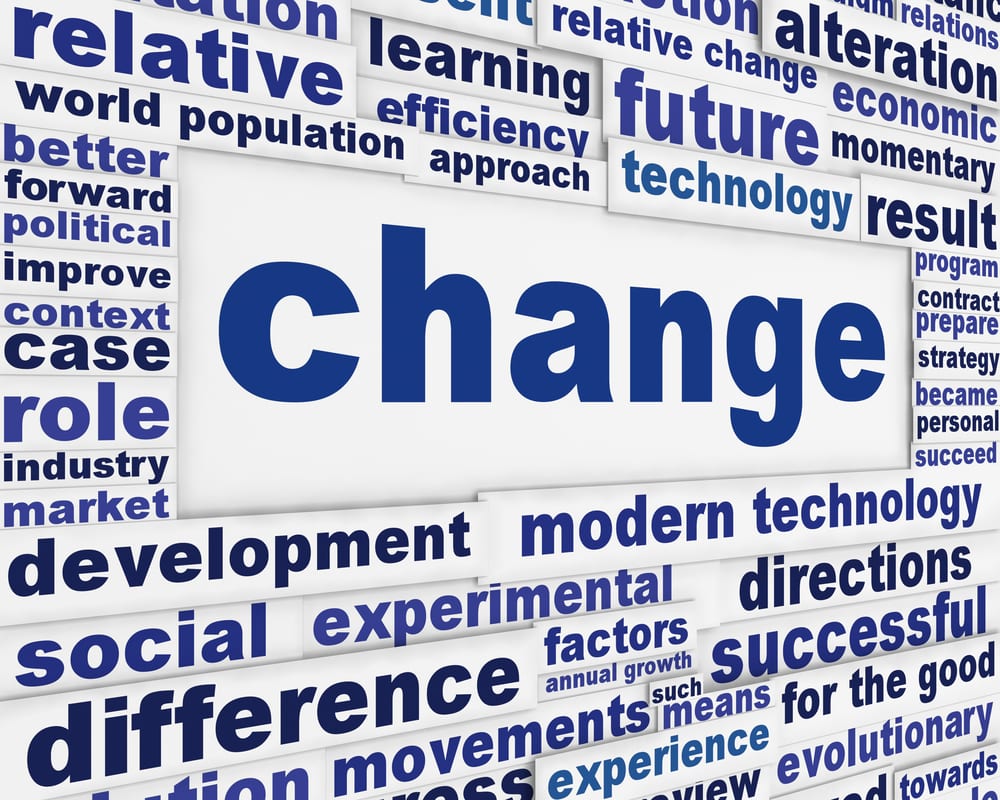I work with a number of clients who continually ask me – what’s next? Sort of reminds me of Bugs Bunny asking: “What’s Up Doc?” I usually respond with a question – seems fair since my clients are catching on that I’m the guy with questions. The question usually reflects the constancy of change in our environment and how career evolution becomes important to accommodate that change.
For instance: Have you anticipated everything that will happen tomorrow, the next day, and the next year? The answers vary, but the truth is – no one can with absolute certainty.
I am fairly certain that change is a constant – hence, we need to continually evolve in our careers, our personal lives, and our habits. Yes, habits.
The Steady Job
Many remember the day when their parents came home from a job that they worked a lifetime at. It was expected and accepted that you would work for one, maybe two companies in your lifetime. If you were a job changer something was wrong – you were unstable, perhaps unreliable, and maybe not well motivated.
For those of us borne of the baby boomer generation we’ve maybe experienced a tad guilt, regret, or wonderment that we haven’t been able to hold a job like Dad (Mom’s usually stayed home or did not have to work). We may have blamed something or someone else. But, as the saying goes – stuff happens – change occurs. Adapt or lose relevance.
Job Shifting – Shape Shifting – The Millennial Challenge
Fast forward to today’s workforce with millennials – job changing is much more frequent, some would say even expected if today’s millennial worker is to accomplish her career objectives. In fact, I’ve worked with clients who express guilt that their career is at a standstill unless they get a new job – every 3 years!
So what’s an employee – or an owner – to do? Seems to me that the days of having your cake and eating it to are gone – or are they? Has anyone yet embraced the concept of continual career evolution? Again, adapt or lose relevance.
Continual Career Evolution Defined
How people manage their careers within and between organizations so that they continually evolve their expertise and their value recognizes the need for a continuous development path that enables people to adapt to changing work and personal environments – continuous career evolution.
Let’s look at an example – a 50+ something professional who started over 35 years ago handwriting business plans – before portable computers, word processing, Microsoft Word, Apple, etc. He hand wrote his work, gave it to his assistants (then called Secretaries), who spent days typing (IBM Selectric) the plans. The plans got copied, 3-hole punched, and mailed (not by Pony Express though) to the client.
Today? That same person types all his material on his desktop using Microsoft Word, and emails the document to clients. He checks correspondence on his Smart phone. His Smart phone allows him to dictate material to send to others and to file the documents in the Cloud. Note, he’s learning how to work even smarter using Google Docs and other time and space management tools – and the pace and expectations for performance increase.
The point is this professional’s career evolution pattern adapts to changing environmental conditions – technology, speed of decision-making, aptitudes and capabilities of staff and customer requirements. And so too is your career evolution pattern adapting.
The talents that get measured in someone’s continuous career evolution include role awareness, role confidence, self-improvement, self-esteem, and sense of belonging, to name a few.
Drive The Bus
It’s not your parents’ career path anymore. To keep pace with increased competition, decreased barriers to entry in our technological economy – our new economy – that enables global business to flourish – we need to be open to constantly evolving our career to adapt to the changes as they happen. Our career evolution is in a push-pull relationship with economic, political, and management evolutions. Which is leading at a given point in time helps to guide our response.
My observation and recommendation is this: your career needs to continually evolve in order to remain motivated. How you choose to do so is up to you. Maintain flexibility; be open to role and career changes, but most importantly, determine what bus you want to drive, what direction you want to go in, evolve your career to enable the change, step on the gas and start driving forward with the change. Have fun.
Did you like this article? Sign up for our RSS and/or Follow us on Google+
Images: ”Change conceptual background / Shutterstock.com“


